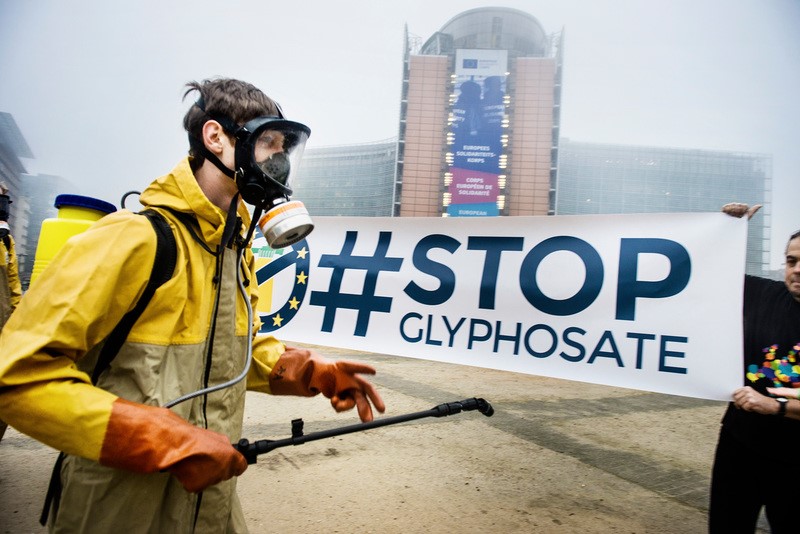Brussels – Potential conflicts of interest and transparency concerns hang over the European Chemicals Agency (ECHA), as it prepares a crucial assessment of glyphosate, a controversial weedkiller which has been linked to cancer, warned Greenpeace.
ECHA’s Risk Assessment Committee is meeting on 8 and 15 March to discuss the health and environmental impacts caused by the use of glyphosate.
In a letter to the agency on behalf of 20 health and environmental organisations, Greenpeace said that the chairman of ECHA’s Risk Assessment Committee and two other members appear to breach the agency’s own conflict of interest rules. The organisations also criticised ECHA’s practice of basing assessments on unpublished industry studies.
The chair of the ECHA committee, Tim Bowmer, worked for two consultancies in the chemical sector for 20 years, including as business development manager and senior account manager. His contract with the organisations ended the day before he started his employment as chair of ECHA’s Risk Assessment Committee.
Greenpeace EU food policy director Franziska Achterberg said: “The question of whether glyphosate can cause cancer affects millions of people in Europe. This is why the scientists who review the evidence on behalf of the European Chemicals Agency must be entirely independent, especially from corporate interests. The practice of using unpublished industry studies must end so that all scientific assessments by EU regulatory agencies can be independently verified.”
In 2015, the WHO’s cancer research agency, IARC, classified glyphosate as “probably carcinogenic to humans”. However, the European Food Safety Authority (EFSA) said there wasinsufficient scientific evidence of a cancer link. EFSA also relied on “unpublished studies” unavailable to the IARC experts, stating that they formed the “core basis” of its evaluation. After significant controversy on the safety of glyphosate, the European Union postponed its decision on a new EU licence until ECHA finalised its assessment, due by November 2017.
Earlier this year, a coalition of civil society organisations launched a European Citizens’ Initiative calling on the European Commission to ban glyphosate, reform the EU pesticide approval process, and set mandatory targets to reduce pesticide use in the EU. Almost 430,000 people have already signed the petition.
Contacts:
Franziska Achterberg – Greenpeace EU food policy director: +32 (0)498 362403, [email protected]
Greenpeace EU press desk: +32 (0)2 274 1911, [email protected]
For breaking news and comment on EU affairs: www.twitter.com/GreenpeaceEU
Greenpeace is an independent global campaigning organisation that acts to change attitudes and behaviour, to protect and conserve the environment and to promote peace. Greenpeace does not accept donations from governments, the EU, businesses or political parties.

